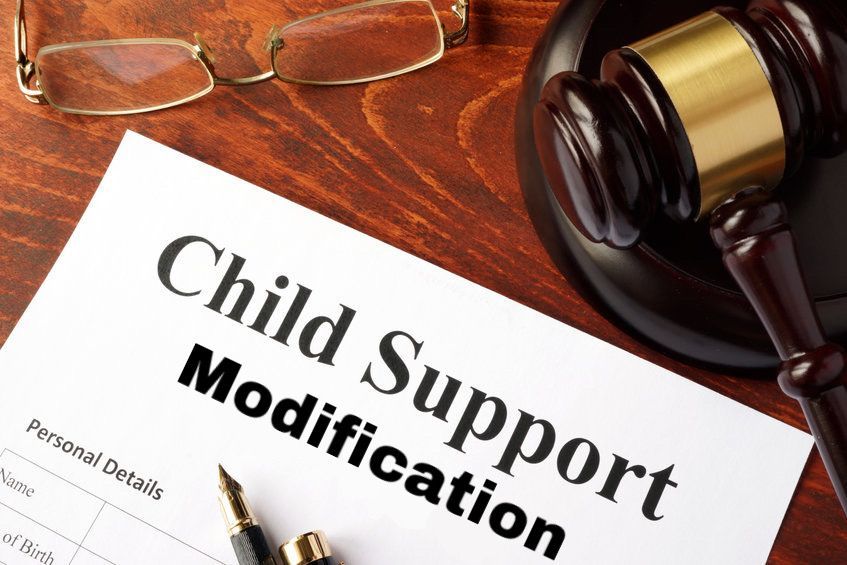Who Pays for Daycare After Divorce? A Complete Guide
Both parents usually pay for daycare after divorce. The cost is split based on each parent's income, not 50/50. Most courts add daycare to child support payments when the daycare is needed so a parent can work or go to school.
This article explains how daycare costs work after divorce. You'll learn who pays, how much, and what to do when daycare costs change. We'll also cover how to get help if your ex won't pay their share.
Why Daycare Costs Matter in Divorce
Daycare is expensive. The average family in America now pays over $13,000 per year for child care. That's more than many families pay for rent. For a single parent, this cost can take up 35% of their income.
When you get divorced, your household goes from two incomes to one. But your kids still need care while you work. The court knows this. That's why judges look at daycare costs when they set child support payments.
What Counts as Work-Related Daycare
Not all daycare expenses count. The court only adds daycare to child support if it's needed for work. Here's what usually counts:
- Daycare centers while you're at work
- Before and after school programs
- Summer day camps during work hours
- Babysitters or nannies during work shifts
- Family members who get paid to watch your kids
What doesn't count? Babysitters for date nights. Care while you run errands. Fancy programs that aren't needed for work.
The key question is simple: Do you need this care to keep your job?
How Courts Decide Who Pays for Daycare
Courts don't just split daycare costs down the middle. They look at how much each parent makes. The parent who earns more pays a bigger share.
The Income Share Model
Most states use something called an "income share model." Here's how it works:
Let's say Mom makes $3,000 per month. Dad makes $6,000 per month. Together, they make $9,000.
Mom makes 33% of the total income. Dad makes 67%.
If daycare costs $800 per month, here's the split:
- Mom pays: $264 (33%)
- Dad pays: $536 (67%)
This system is fair because it's based on what each parent can afford.
How Rhode Island Handles Daycare Costs
In Rhode Island, daycare expenses are added on top of basic child support . The court uses the Rhode Island Child Support Guidelines to figure out the base amount first. Then they add daycare costs.
The parent who doesn't have custody most of the time pays their share directly. This money often comes out of their paycheck automatically, just like regular child support.
Here's an example: If the non-custodial parent makes 70% of the combined income, they'll pay 70% of daycare costs. The custodial parent pays the remaining 30%.
Who Actually Writes the Check
Even though both parents share the cost, usually one parent pays the daycare provider directly. Then the other parent pays their share back.
Common Payment Methods
Option 1: Added to Child Support
Most courts add daycare costs to monthly child support payments. The money comes out of one parent's paycheck automatically. The parent receiving the money then pays the daycare center.
This is the easiest method. It keeps things simple and makes sure payments happen on time.
Option 2: Direct Reimbursement
Sometimes parents split daycare bills directly. The parent who pays the daycare bill shows receipts to the other parent. Then the other parent pays their share.
This can work if both parents get along well. But it can cause fights if someone doesn't pay on time.
Option 3: Each Parent Pays the Center
Some divorced parents have the daycare center bill them separately. Each parent pays their own percentage directly to the center.
This works best when parents share custody equally and both drop off or pick up the kids regularly.
What If Your Ex Won't Pay Their Share
It happens. Your ex stops paying their part of daycare costs. What do you do?
Your Legal Options
First, check your divorce decree. If daycare is included in the child support order, you have legal backing.
You can:
- File for contempt of court
- If your ex ignores a court order, they're breaking the law. The court can force them to pay.
- Contact the child support enforcement office
- They can help collect unpaid support and daycare costs.
- Request wage garnishment
- The court can take the money directly from your ex's paycheck.
- Document everything
- Keep all receipts, emails, and texts about daycare payments. You'll need proof if you go to court.
Don't wait too long to act. In Rhode Island, you should file for help as soon as payments stop. The longer you wait, the harder it gets to collect back payments.
Can You Choose Any Daycare You Want
Not exactly. The court expects parents to pick reasonable daycare options. You can't choose the most expensive center in town and force your ex to pay half.
Courts look at:
- Whether the cost is reasonable for your area
- If the daycare is licensed and safe
- Whether cheaper options are available
- The quality of care provided
If you pick an expensive daycare without good reason, the judge might only make your ex pay what a typical center would cost.
When Daycare Costs Change
Kids grow up. Daycare needs change. What happens then?
Starting Daycare After Divorce
Maybe you didn't need daycare when you first got divorced. But now you got a job. You need to enroll your child in daycare.
You can ask the court to modify your child support order. The judge will add daycare costs if they're needed for work.
Daycare Costs Go Up
Daycare centers raise prices. Your child moves to a new age group that costs more. These are real changes that affect your budget.
In Rhode Island, an increase in daycare costs can be grounds for modifying child support. But the change needs to be big enough - usually at least 10% different from what was originally ordered.
Your Child Starts School
This is a big one. When your child starts kindergarten, full-time daycare costs usually drop. You might only need before and after school care.
This is a major change in expenses. Either parent can ask the court to lower child support payments to match the new, lower daycare costs.
Modifying Child Support for Daycare Changes
Here's what you need to know about changing your child support order:
When You Can Modify:
- Daycare costs increase or decrease significantly
- You start or stop needing daycare
- Your income changes
- Your ex's income changes
- You lose your job (but not on purpose)
When You Can't Modify:
- You voluntarily quit your job to avoid paying
- The change is temporary (like summer vacation)
- The change was planned and expected
How to Modify:
- File a motion with the family court
- Show proof of the changed circumstances
- Provide current income information for both parents
- Bring receipts and documentation
- Attend the court hearing
Important: Changes don't happen automatically. You must file paperwork with the court. And the new amount only starts from the date you file, not before.
Understanding Child Support vs. Daycare Costs
Many parents get confused about what child support covers. Let's clear this up.
Basic Child Support
Basic child support is meant to cover:
- Food and groceries
- Clothing and shoes
- Housing costs (rent, utilities)
- School supplies
- Basic personal care items
Extra Expenses (Including Daycare)
These costs are usually shared separately:
- Work-related daycare
- Health insurance premiums
- Uninsured medical expenses
- Dental and vision care
- Extracurricular activities (sometimes)
- Private school tuition (sometimes)
Think of it this way: Basic child support covers day-to-day living. Daycare is an extra cost that gets added on top because it's so expensive.
Special Situations With Daycare Payments
Every family is different. Here are some unique situations:
Shared Custody Arrangements
When parents have 50/50 custody, daycare can get tricky. Both parents might need daycare during their parenting time.
Courts usually still split costs based on income. But they might adjust the formula to account for each parent's actual daycare use.
Older Children and After-School Care
Your 10-year-old doesn't need full-time daycare. But they do need after-school care until you get home from work.
This counts as work-related childcare. The costs are split the same way as full-time daycare, just for fewer hours.
Summer Break Childcare
School's out for summer. Your child needs full-time care again.
Summer camps and programs count as daycare if they're needed for work. Some divorce decrees specifically address summer care because costs can be different.
Family Members Providing Care
Your mom watches the kids while you work. Do you have to pay her? Does your ex have to chip in?
If your family member provides care for free, there's no cost to split. But if you pay your mom $400 a month, that's a real expense. Your ex should pay their share.
One catch: The court will check if the amount you pay is reasonable. You can't pay your sister $2,000 a month for care that would cost $800 at a daycare center.
One Parent Works From Home
Your ex works from home now. They say they don't need daycare during their parenting time.
This doesn't mean you lose your daycare reimbursement. If you need daycare to work, you still get it. What your ex does during their time is up to them.
The Real Cost of Daycare Today
Let's talk numbers. Daycare costs have jumped dramatically in recent years.
National Averages for 2024
According to Child Care Aware of America, the average cost of child care in 2024 hit $13,128 per year. That breaks down to about $1,094 per month.
But costs vary wildly by state and city. In some places, you'll pay $800 per month. In others, it's $2,000 or more.
Why Daycare Is So Expensive
Daycare costs rose 29% between 2020 and 2024. That's faster than overall inflation, which went up 22% during the same period.
Why? A few reasons:
- Daycare workers got (much-needed) raises
- Centers face higher food and utility costs
- Safety regulations require more staff per child
- Many smaller daycare providers closed during the pandemic
For divorced parents, this means daycare takes up more of your budget than it did even a few years ago.
Tax Benefits for Daycare
Don't forget about tax help. The Child and Dependent Care Credit can save you money on your taxes.
You can claim up to $3,000 in daycare expenses for one child, or $6,000 for two or more kids. The credit is worth 20% to 35% of your costs, depending on your income.
One parent claims this credit each year. Your divorce decree should say who gets it. If it doesn't, talk to a tax professional or your lawyer.
Getting Your Divorce Decree Right the First Time
The best time to handle daycare costs is during your divorce proceedings. Don't wait until there's a problem.
What Should Be in Your Decree
Your divorce agreement should clearly state:
About Daycare Costs:
- How costs will be split (by income percentage)
- Who pays the provider directly
- How reimbursement works
- What counts as "reasonable" daycare
- How to handle summer care
- When and how to request modifications
About Documentation:
- How often to share receipts
- Deadlines for reimbursement
- What proof is required
About Disputes:
The clearer your agreement, the fewer fights you'll have later.
Common Mistakes to Avoid
Mistake #1: Assuming 50/50 Split
Many parents think daycare is automatically split evenly. But courts usually base it on income. Make sure your decree reflects the right percentages.
Mistake #2: Not Addressing Future Changes
Your three-year-old will start school eventually. Build in how you'll handle changing daycare needs.
Mistake #3: Vague Language
"Parents will share daycare costs" isn't specific enough. Spell out exactly how, when, and how much.
Mistake #4: Forgetting Tax Benefits
Decide now who claims the childcare tax credit. Don't fight about it later.
How a Family Law Attorney Can Help
Daycare disputes can get messy fast. A good family lawyer helps you avoid problems.
When to Call a Lawyer
You should talk to an attorney if:
- Your ex refuses to pay their share
- Daycare costs changed significantly
- You need to modify your child support order
- You're going through a divorce and have young children
- Your ex wants you to pay for unreasonably expensive care
- Your income or employment changed
What a Lawyer Can Do for You
An experienced family law attorney can:
During Divorce:
- Draft a clear, enforceable daycare agreement
- Calculate fair cost-sharing based on income
- Protect your rights as a parent
- Make sure daycare is properly included in child support
After Divorce:
- File for child support modification
- Enforce existing daycare payment orders
- Represent you in contempt proceedings
- Negotiate with your ex's attorney
- Calculate what you're owed in back payments
For Rhode Island Families:
At Inman & Tourgee , we've helped hundreds of Rhode Island families handle child custody and support issues. We know how Rhode Island family courts work. We can guide you through the process and fight for what's fair.
Real Questions From Real Parents
"Can my ex make me use their family for free daycare?"
No. You get to choose your child's daycare provider. But the court might not make your ex pay if free, safe care is available and you choose to pay for care instead.
"What if we both use different daycares?"
This can work if you have shared custody. Each parent pays for the care they use. But you'll need to keep careful records and make sure the total is fair based on income.
"My ex says daycare is too expensive. Can they refuse to pay?"
No. If daycare is in the court order, they must pay. However, they can ask the court to review whether the cost is reasonable.
"I got a big raise. Will my daycare share change?"
Yes, probably. Your ex can ask for a modification if your income went up significantly. The percentage you each pay would be recalculated based on new income figures.
"Can I stop paying if my child is sick and misses daycare?"
No. Most daycares charge whether your child attends or not. You still owe your share.
"What if my ex takes vacation time instead of using daycare?"
They don't have to use daycare during their parenting time. But if you need daycare during your time, you still get reimbursement.
Planning for Future Daycare Needs
Smart parents think ahead. Here's how to prepare:
For Infants and Toddlers
Infant care is the most expensive. Expect to pay 50% more than you would for a preschooler. Build this into your budget from the start.
For Preschoolers
As kids get older, daycare costs usually drop a bit. But you're still looking at several years of full-time care. Plan accordingly.
For School-Age Kids
Once your child starts kindergarten, you'll likely only need before and after school care. This is roughly half the cost of full-time daycare.
By third or fourth grade, some families don't need any care. But that's years away.
Emergency Backup Care
What if your regular daycare is closed? Snow days happen. Providers get sick. Have a backup plan and know how those costs get shared.
Tips for Peaceful Co-Parenting Around Daycare
Money fights are common after divorce. Here's how to keep the peace:
Communicate Clearly
Send receipts promptly. Respond to payment requests quickly. Use email or a co-parenting app so everything is documented.
Be Reasonable
Don't pick the fanciest daycare just because your ex has to pay half. Choose quality care at a fair price.
Plan Ahead
Tell your ex about enrollment deadlines, price increases, or changes to your work schedule that affect daycare needs.
Compromise When Possible
Maybe you prefer Daycare A and your ex prefers Daycare B. Can you agree on Daycare C? Finding middle ground prevents court battles.
Document Everything
Keep every receipt, every payment confirmation, every email about daycare. If you end up in court, you'll need proof.
Red Flags and Warning Signs
Watch out for these problems:
Your Ex Constantly Questions Costs
Some questioning is normal. But if your ex fights every single invoice, you might need legal help.
Payment Delays
One late payment can be an oversight. But if your ex regularly pays late or "forgets," that's a pattern.
Refusing to Discuss Daycare
Your ex won't talk about daycare options or ignores your messages about costs. This makes co-parenting nearly impossible.
Threatening to Stop Payment
If your ex threatens to withhold daycare payments, document the threat and contact an attorney immediately.
Making Unilateral Decisions
Your ex enrolls your child in a different daycare without consulting you. This violates your child custody agreement.
What About High-Income Families
If you and your ex have high incomes, daycare might include nannies, private tutors, or elite programs.
Courts generally allow higher daycare costs for high-income families. But the expense still needs to be reasonable for your income level.
If you're paying $3,000 a month for a nanny, that might be reasonable if you jointly earn $300,000 a year. Not so much if you earn $60,000.
Understanding the "Best Interest of the Child"
Courts always focus on what's best for your child. That includes stable, quality childcare.
When judges look at daycare disputes, they consider:
- Is the child safe and well-cared for?
- Does the daycare support the child's development?
- Is the cost reasonable and necessary?
- Can both parents afford their share?
- What's the least disruptive option for the child?
Your child's wellbeing comes first. Keep that in mind when making daycare decisions.
The Bottom Line on Daycare and Divorce
Here's what you need to remember:
- Both parents typically pay for daycare
based on their income percentages, not 50/50.
- Daycare must be work-related
to count toward child support. Care needed so you can work, go to school, or train for employment qualifies.
- Costs should be reasonable
for your area and income level. Courts won't make your ex pay for unnecessarily expensive care.
- Get it in writing
during your divorce. A clear, detailed agreement prevents future fights.
- Changes require court action
to modify child support orders when daycare costs change significantly.
- Document everything
to protect yourself. Keep receipts, records, and communications about all daycare expenses.
- Don't wait to seek help
if your ex won't pay their share. The longer you wait, the harder it gets to collect.
Final Thoughts
Divorce changes everything about family finances, especially when it comes to daycare. But understanding how daycare costs work after divorce can save you stress, money, and arguments.
The key is planning ahead and getting good legal advice. Whether you're going through a divorce now or dealing with a daycare dispute years later, having an experienced family law attorney on your side makes all the difference.
Daycare costs won't last forever. Your children will grow up and need less care. But while they're young, making sure daycare expenses are handled fairly helps both you and your kids thrive.
If you're facing questions about daycare costs and child support in Rhode Island, don't go it alone. The family law team at Inman & Tourgee has over 125 years of combined experience helping families like yours. We understand Rhode Island family law and can help you get a fair agreement that works for everyone.
Ready to discuss your daycare and child support situation? Contact Inman & Tourgee today at (888) 906-7295 for a consultation. We're here to help Rhode Island families find practical solutions to complex family law issues.











